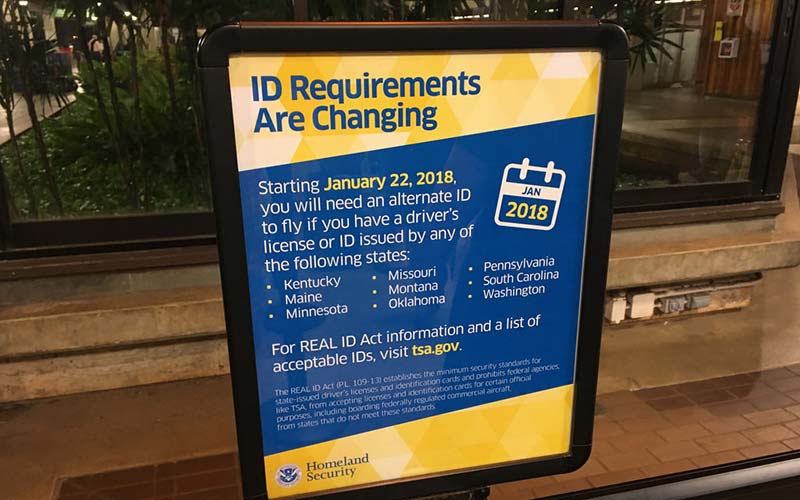State’s not in compliance with the REAL ID ACT – Residents won’t be able to use their Driver Licenses as valid ID's for Domestic Flights in 2018.

Beginning January 22, 2018, driver’s licenses or state IDs issued by states that are not in compliance with the REAL ID Act and have not been granted an extension by the Department of Homeland Security (DHS) may not be used to fly within the U.S.
Passed by Congress in 2005, the REAL ID Act established minimum security standards for state-issued driver’s licenses and identification cards and prohibits federal agencies, like TSA, from accepting licenses and identification cards for official purposes from states that do not meet these standards.
Beginning October 1, 2020, every traveler will need a REAL ID-compliant license or state ID or another acceptable form of identification to fly within the U.S.
If your state is compliant: You may continue to use your state-issued driver’s license or ID to fly in the U.S. until October 1, 2020. Beginning October 1, 2020, you may only use a REAL ID compliant driver’s license or ID or another acceptable form of identification for domestic air travel.
If your state is not compliant: Beginning January 22, 2018, you may continue to use your state-issued driver’s license or ID for domestic air travel only if your state has been granted an extension to the compliance deadline by DHS. If your state has not been granted an extension by DHS you may not use your state-issued driver’s license or ID for domestic air travel. Beginning October 1, 2020, you may not use your state-issued driver’s license or ID for domestic air travel.
Check your state’s status here at: REAL ID
Beginning January 22, 2018, travelers from non-compliant states will not be able to use their driver’s licenses or state IDs at TSA checkpoints, unless the state received an extension to comply.